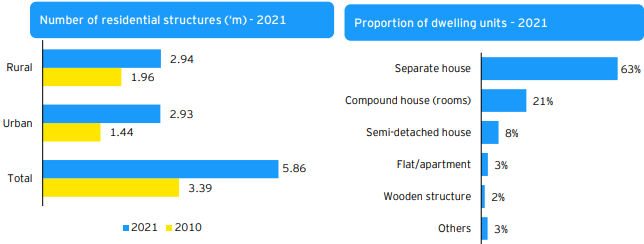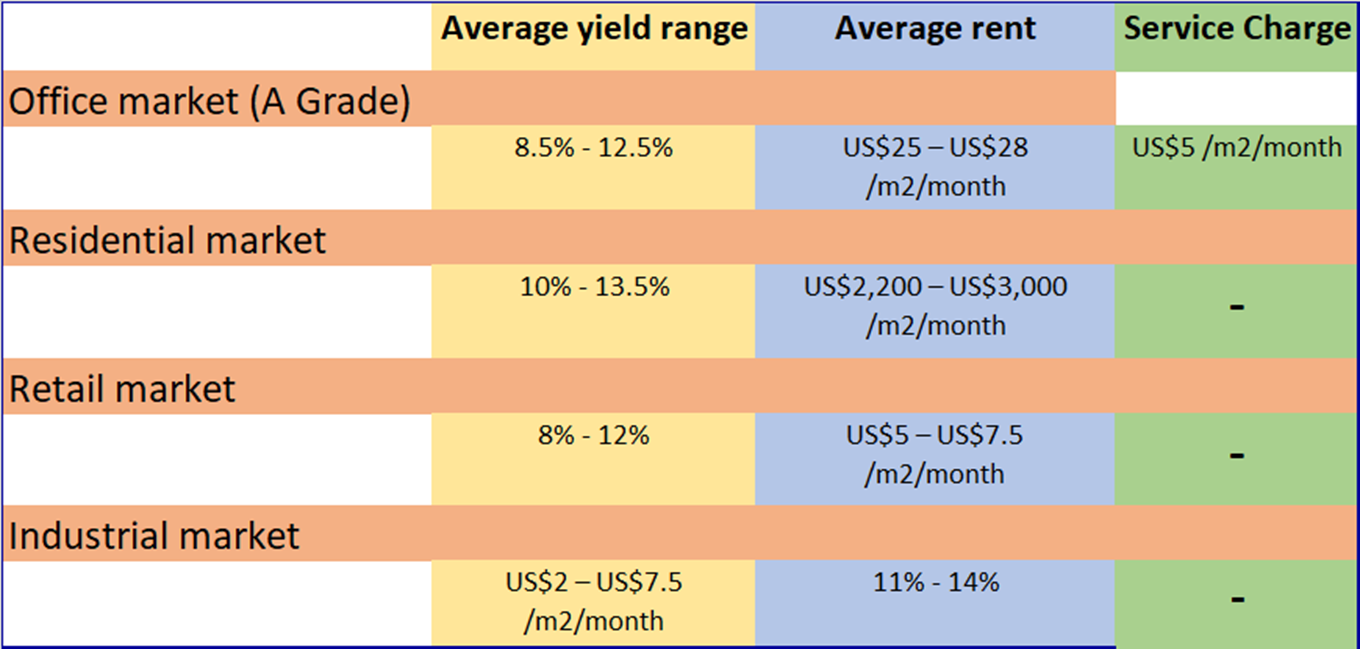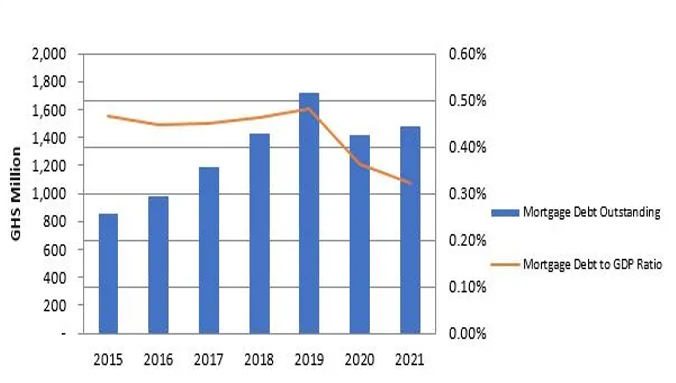Diaspora: Securing home ownership in Ghana
Linda Ramona, London
February 20, 2023
F or members of the diaspora who aspire to return and settle in Ghana, owning a home is often the first item on the agenda. Potential buyers will have to conduct the necessary due diligence and even look at the data, which gives an idea of the current and future trends in thenreal estate sector. However, all that tedious work can be cut short with the help of licensed real estate companies, lawyers, and brokers. Buyers can also get advice from domestic and international banks, which offer innovative financial products to meet the needs of the diaspora population.
The real estate sector comprises of residential (low end, middle income and residential appartments and high end homes), hospitality (hotels, furnished appartments) and commercial (office, retail, warehouses and industrial). Demand outstips supply and causes price increases in every segment of the market. Domestic investors see real estate as a hedge against inflation and a way of generating extra passive income. The real estate sector recorded a compounded annual growth rate (CAGR) of 30 percent between 2016 and 2021; making it one of the fastest growing economic sectors in Ghana1. Fitch, the rating agency, estimated this growth was 4.1 percent year on year in 2022.
Closing the housing deficit gap
The stock of residential properties has grown from a total of 3.39 million structures in 2010 to 5.86 million structures in 2021. Despite this increase in the last 11 years, Ghana still has a housing deficit of 1.8 million. To fill the gap, the State Housing Corporation is constructing 6,584 rental housing units for public workers. The National Homeownership Fund, three universal banks, the Affordable Real Estate Investment Trust and also the Real Estate Investment Trust (by GCB capital) have joined forces to develop residential properties for middle income families.
The goverment is also trying to bridge the gap in the industrial property market. The Ministry of Agriculture and the Ministry of Special Development Initiatives (MSDI) in the framework of the ‟One District One Warehouse” initiative, have increased the number of warehouses in the country. Real estate data shows, that at the end of 2022, the government had completed 80 warehouses across the country, each with a capacity to store up to 1,000 metric tonnes (MT) of agricultural commodities2.
Illustration of residential housing stock

Sources: GIPC, 2022
Investing in Ghana's real estate
Ghana has a strong pool of professional real estate companies and intermediaries that offer services to the diaspora. Licensed companies provide a level of comfort because they are expected to abide by State laws and regulations. Through their expertise, they can assist in land purchase and sale, home acquisition, legal services, and finance. For entrepreneurs considering ventures in real estate, one of the key institutions is the Lands Commission of Ghana, which provides services in geographic information and land registration. In the same area, the Town and Country Planning Department (TCPD), the Fire Service Authority, and the Environmental Protection Agency (EPA) are institutions that ensure compliance with the country’s laws and regulations in the real estate business. Private companies also offer additional services, for example, with construction permits, topographic Surveys, geotechnical studies, and soil tests.
The ministry of works and housing overseas the entire sector. Ghana Real Estate Developers Association (GREDA), the Ghana Real Estate Professionals Association (GREPA) and the Ghana Association of Real Estate Brokers are industry associations or lobby groups, which according to their respective statutes, seek to promote professional standards and ethics within the industry.
In current laws, landownership has three legal land regimes: customary, statutory, and State land. However, traditional authorities have custody of about 80 percent of the national territory. This complex regime is another layer of hurddle during any transfer of ownership to corporate or to individuals. However, in the context of housing shortage, the laws are evolving to create an adequate environment for investors. Licensed surveyors and lawyers can conduct investigations to ascertain the rightful owner, the size, and topography. They will also determine if there are litigations, suitability for residential purposes, and the existence of any liens and other collateralized obligations that may resurface later.
Despite the cumbersome adminstrative procedures, the market remains the most attractive in West Africa, with potential for large scale projects in every segment of the sector and stable return on investment.
Yield and average rent

Sources: GIPC, 2022, Knight Frank 2024, Northcourt 2022
Real estate finance
According to Dr. Frank Gyamfi-Yeboah, ‟Ghana’s mortgage market remains underdeveloped, with a very low mortgage debt to GDP ratio of just about 0.32 percent as at the end of 2021”. In a 2023 research paper, the economics professor estimated that the total outstanding mortgage debt at the end of 2021 was only about US$246million (GH₵1.5billion). He ascribed this underdevelopment, partly to a culture of risk aversion in commecial banks. Commercial banks tend to see real estate asset mostly as an illiquid but potential collateral for a loan. The post Covid-19 environment, which is characterized by debt default, high interest rate, inflation and currency devaluation also acts as a disincentive. In the near term, he found, the outlook for the mortgage market is negative, driven largely by the current high levels of interest rates3.
Size of Mortgage Market (2015-2021)

Sources: Data compiled by Frank Gyamfi-Yeboah (from annual reports)
According to the Bank of Ghana (BoG), ‟Ghanaians in the diaspora also send money home to fund the construction of residential and or commercial buildings”4. Domestic banks have the opportunity to intermediate to facilitate these financial transactions. The BoG indicates that nine (9) banks offer mortgage products to the diaspora. These services include home purchase, home improvement, equity release, home construction, and land purchase. A few banks offer ‟Non-Resident Ghanaian (NRG) Account”, also commonly known as ‟Diaspora Account”. One example is the GT Bank, one of Ghana’s leading domestic banks, whose diaspora account provides Ghanaians living abroad access to a wide range of banking services. Many other domestic banks including the FNB (First National Bank) Ecobank, United Bank for Africa (UBA), Stanbic Bank, and Access Bank offer similar services, some of which may have options for non-Ghanaians considering buying properties in Ghana.
Outlook
Since 2020, risk aversion from banks has intensified. In a 2023 review of the banking sector, the Bank of Ghana (BoG) found that the real estate sector recorded a high ratio of non-performing loans (NPL) of 34.3 percent in August 2023 (32.8 percent in August 2022). The global economic turmoil triggered by the war in Ukraine and the slow post-COVID-19 recovery continue to create a volatile environment for real estate. In September 2023, the annual average monetary policy rate of the BoG was 30 percent, while the average yearly lending rate of commercial banks, was 31.66 (April 2023). These relatively high rates continue to cascade down the mortgage business. With this context, the Center for Affordable Housing Finance Africa (CAHF) is cautiously optimistic. It estimates that the cost of capital for this sector is likely to remain ‟exorbitant” in an environment, where real estate financing options for aspiring homeowners remain limited5.
Related Articles
BIBLIOGRAPHY
1❩ Ghana Investment Promotion Center - GIPC (2022): Ghana’s Real Estate Sector Report - https://www.gipc.gov.gh/wp-content/uploads/2023/04/Ghanas-Real-Estate-Sector-Report.pdf
2❩Northcourt Real Estate (2022): Ghana Real Estate Market Report - Northcourtrealestate.com, 2022
3❩Frank Gyamfi-Yeboah (2023): The mortgage market… Trends and outlook - https://webapps.knust.edu.gh/staff/dirsearch/profile/publications/734b963632f1.html. This research was published in https://thebftonline.com/2023/07/10/the-mortgage-market-trends-and-outlook/
4❩ Bank of Ghana (2021): Guidelines For The Operation of Money Transfer Scheme in Ghana https://www.bog.gov.gh/wp-content/uploads/2021/02/Guidelines-for-Inward-Remittance-Services-by-PSPs.pdf
5❩ Ahiadu A.A. et al. (2023): 2023 Housing Finance Yearbook: Ghana profile https://housingfinanceafrica.org/documents/2022-housing-finance-yearbook-ghana-profile/
